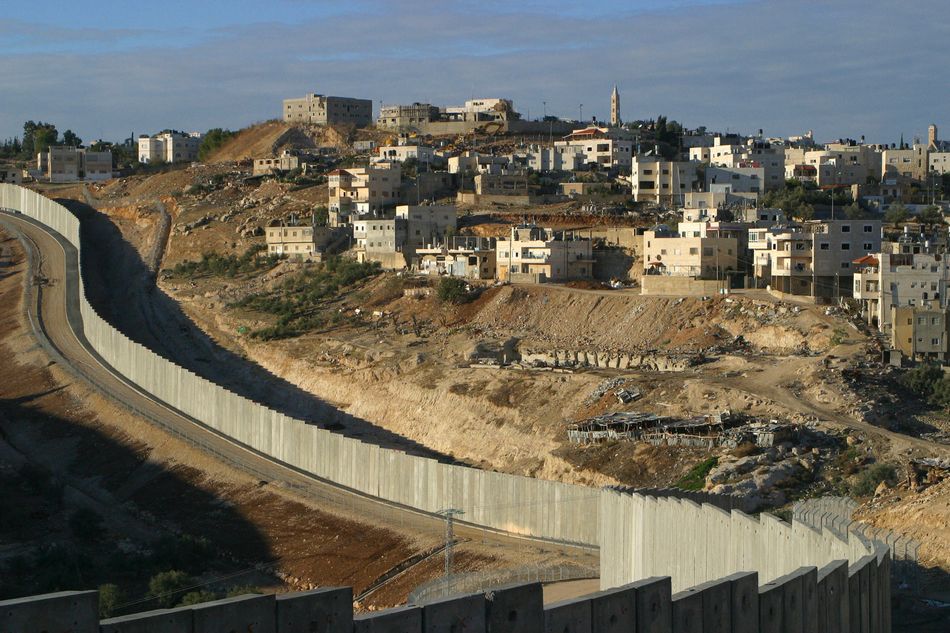In a recent article for Prospect, Vincent Fean, former British consul general to Jerusalem, made a persuasive case for the unconditional recognition of Palestine, in line with the UK’s international legal obligations. Unless such a move forms part of a broader strategy, however—one that includes much more pressure, extensive accountability and actual consequences for Israel’s abuse of Palestinian rights and continued occupation of Palestinian territories—Britain risks mistaking symbolism for serious action.
The horror has become inescapable. ITV’s Emma Murphy recently reported from Gaza, embedding with aid crews as they air-dropped minimal supplies into the ruins left there by this war. Her footage—broadcast to millions of British viewers—showed complete devastation and rubble, amidst a society unravelling. It is a truth too stark to unsee, though some still insist on denying it.
The British public—and many British officials—seem far ahead of the country’s politicians on Gaza. I have been involved in the UK policy arena for 20 years, since the 7th July bombings in 2005, when extremist Islamist terrorists struck London. Never in my career have I seen so many in His Majesty’s Government so widely in agreement about a foreign policy issue in the wider Arab world. Privately, across different government departments, the width and breadth of consensus against Israeli actions is stark.
In more discreet conversations, officials widely sympathise with the view that what is happening in Gaza amounts to genocide, a conclusion also reached by two major Israeli rights organisations and a former Israeli attorney general, not to mention numerous non-Israeli rights groups. The president of the International Association of Genocide Scholars also agrees. One official told me recently, in the company of other colleagues, that, as they looked at pictures of Gaza, they thought that the calls for “never again” after World War Two had proven to be hollow. This is more than moral discomfort, it is a matter of dereliction of duty. Only in June, we marked the 30th anniversary of Srebrenica, a massacre recognised by the UN as a genocide. The International Court of Justice has already affirmed that all states, including the UK, have a legal duty to prevent genocide in Gaza.
It is against this background that the call for the UK to recognise the State of Palestine arose. Fean insists recognition ought to be unconditional. Many have focused on Keir Starmer indicating recognition could be averted if Israel altered course, ie, by giving Israel conditions that could stop recognition. But others are now calling on Starmer, incredulously if inadvertently, to give Hamas the same kind of power, by demanding that recognition not take place unless Hamas changes its behaviour, by releasing the Israelis it still holds prisoner.
To be clear: all Israeli and Palestinian hostages and innocent detainees should be released immediately. But tying recognition of Palestine to Hamas’s actions is deeply flawed. It effectively hands a violent, proscribed militant group—which does not represent the Palestinian people—a veto over the Palestinians’ fundamental right to self-determination. Recognition of Palestine is not a concession to Hamas; it’s an acknowledgment of the Palestinian people’s inalienable rights under international law. This is why the the vast majority of the world’s countries recognised Palestine years before the 7th October attack. Indeed, recognising the State of Palestine directly strengthens and benefits the PLO, the officially recognised representative of the Palestinian people, and Hamas’s rival. The idea that recognition somehow “rewards” Hamas is, thus, rather absurd.
The UK does not, and should not, equalise the Palestinian people with Hamas. That, regrettably, is what the Israeli government has done since 7th October. Israel’s president, Isaac Herzog, himself declared that it is “an entire nation out there that is responsible” for the crimes of that day. The UK must not fall into the same deplorable frame. Likewise, recognition should be framed neither as punishment against Israel, nor reward for Hamas’s crimes. The only relevant matter here is the upholding of international law.
As the UK prepares to recognise Palestine, a move set for a Saudi-French-led two-state solution conference in New York in September, the hope, no doubt, is that this will absorb public anger over Gaza, and show the UK government taking action against atrocities. But if this is the government’s idea of a change in policy, it risks repeating the mistakes of history.
At a UN conference last week in the run-up to the September summit, the Norwegian foreign minister spoke about the Oslo Accords—the 1993 peace agreement which won the Israeli and Palestinian leaders at the time, Yasser Arafat and Yitzhak Rabin, a Nobel peace prize. He declared that there was one “big” and “serious flaw” in that peace process: there were no sanctions or consequences for non-action. The UK needs to pay heed to this and not let recognition become a new version of Oslo. If the UK move is to prove to be more than symbolism, there must be genuine consequences if international law is broken.
London is clearly concerned that more forthright steps in this regard risk damaging ties with Washington. The government highly values its relationship with the United States, particularly amid Russia’s invasion of Ukraine and Putin’s ongoing threat to Europe. But the UK is not alone in its concerns over Moscow; Norway has reason to be even more worried, due to its geographic proximity to Russia. And yet, the Scandinavian state has not let that concern stop it taking actual measures. Starmer must calculate, most certainly, but he must avoid paralysis, especially given the unpredictable nature of the Trump administration. British credibility will only be called into question amid continuing impasse over Gaza.
Recognition can’t be the end goal here. It must be a first step in the escalating action needed to stop what is happening in Gaza (and in the West Bank): halting arms exports, backing war crimes investigations, applying pressure in international forums and suspending cooperation. Anything less will doom recognition to repeat the failures of Oslo—that is to enact symbolism without enforcement, hope without justice. A former Israeli ambassador to France recently warned President Macron: “If immediate sanctions are not imposed on Israel, you will end up recognising a cemetery.” The same applies to the UK.
Fean is right to invoke history. From Balfour to the Mandate, Britain helped shape the Israel-Palestine conflict. Recognition by the UK means something very special to Palestinians—more so than French recognition. This is because it could mark a new chapter; the country that issued the Balfour Declaration, which led to the creation of the State of Israel, now recognising the State of Palestine? But only if the UK also signals a willingness to confront power.
Keir Starmer has the opportunity to really act, but his government has to decide to become a consequential actor in ending this conflict. Recognition of the State of Palestine must not end up merely a symbol, in and of itself. It must become the emblem of the change that is needed, to free both Palestinians and Israelis from this terrible cycle, to end the occupation once and for all.













